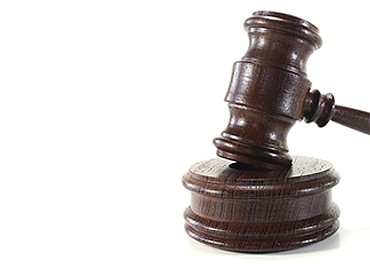
The Scenario In 2010, you won a state court judgment against “Joe” for breach of contract. In 2017, “Joe” filed for Chapter 7 bankruptcy. Should you be allowed to object to Joe discharging your judgment by now asserting that Joe’s debt to you arose from a fraud? Most bankruptcy courts say you can. Bankruptcy courts frame this issue in statute of limitations and issue/claim preclusion theories. The crux of issue/claim preclusion is “where was this theory years ago when we first fought it out?” Bankruptcy Courts favor you, the plaintiff.…Read More
![An Unappealable Contempt Decision Providing Rachmones[1]](https://www.bankruptcystrategies.com/wp-content/uploads/2020/08/An20Unappealable20Contempt20Decision20Providing20Rachmones20DPLIC2059532851-thumb-500x332-86415-thumb-350x232-86425.jpg)
The American Bankruptcy Institute’s (“ABI”) VOLO Project had me synopsize the Second Circuit Court of Appeals’ decision in U.S.A. v. Kerr-McGee Corp. (In re Tronox Inc.).[2] The sixty-two-page opinion boiled down to two “holdings.”[3] They are: a.) Claims derived through a debtor are bankruptcy estate property which only a trustee can assert; b.) A District Court order on a contempt motion which: 1.) enforced an existing injunction; and 2.) made no contempt finding nor sanctions award was not a “final order”[4] subject to immediate appeal. To some bankruptcy practitioners, the second holding may…Read More

Over one month ago, we had a big hearing in a big fight over the following facts: A.) There was an adversary proceeding in a chapter 11 case (“Case 1”). B.) The adversary proceeding was settled during the chapter 11 case.1 C.) The non-debtor party defaulted under the stipulation. D.) The chapter 11 case was dismissed without preserving any entered orders.2 E.) Two years later, the same debtor filed a chapter 7 case (“Case 2”). F.) The Case 2 chapter 7 trustee is suing for the debtor’s rights under the…Read More

Bankruptcy relief is not a sign of failure. It expresses hope. There is life after bankruptcy. Potentially, a better life. Bankruptcy discharges are “fresh starts” for individuals to build futures, where their pasts are not repairable. But, a debtor’s past can prevent a bright, post-bankruptcy future. Dischargeability and Discharge Bankruptcy Code §§ 523 and 727 provide means for limiting or eliminating that fresh start. Section 523 identifies specific debts which can be excluded from discharge. These debts are generally from significant breaches of duty (e.g., not paying taxes or spousal…Read More

Imagine thinking you’ve put a bad business experience behind you, only to learn its ghost is attacking you. That’s the specter of poorly planned entity chapter 7 bankruptcies. Unfortunately, most bankruptcy cases for entities which start as Chapter 7 cases suffer from this. Entities Prudent entrepreneurs conduct business through entities. Popular entity forms include a.) corporations, b.) limited partnerships, and c.) limited liability companies.1 Conducting business through an entity protects the business owner from most of the business’ creditors.2 The risk of loss is limited to their capital contributions to…Read More
![Avoiding Clouds on Homestead Exemptions[1]](https://www.bankruptcystrategies.com/wp-content/uploads/2020/08/Avoiding20Clouds20on20Homestead20Exemptions20DPLIC2039862873-thumb-350x233-79770-thumb-350x233-79755.jpg)
We represent a debtor with a substantially younger, non-debtor spouse and equity in their home, exceeding the debtor’s homestead exemption. The home is owned as tenants in the entireties. This means that the surviving spouse inherits the property free and clear of the deceased spouse’s creditors. The spouse’s youth dissuaded the chapter 7 trustee from trying to sell the home free and clear of both owner’s interests.[2] The trustee got creative. She tried selling just the debtor’s interest in the house. The buyer gets the right to live with the…Read More

The other day, I had a telephone call with a client; we’ll call him “Slim.” Slim was worried about the impact a venture’s winding up might have on his public image. His concern was that a creditor might blab to the press, which would then show him in a negative light. Slim is an entrepreneur and, as an entrepreneur, Slim assumes the risk of failing ventures. Most fail. I assume Slim’s reputation is built, in part, on his success. I also assume that his success rate is favorable. Failure’s Positives…Read More

Involuntary bankruptcy petitions may be the nuclear weapon in the commercial debtor-creditor collections arsenal. Like its military counterpart, it devastates. An alleged debtor may be crippled economically, where it was viable before the involuntary petition was filed. To limit abuse of involuntary petitions, the Bankruptcy Code imposes onerous penalties on petitioning creditors with failing petitions. Those penalties include: (A) costs; or (B) a reasonable attorney’s fee; or against any petitioner that filed the petition in bad faith,1 for – (a) any damages approximately caused by such filing; or (b) punitive damages.2…Read More

In the 1960’s, New York City’s WMCA radio called itself the “Good Guys.” Today, referring to a “good guy” frequently means a “good guy clause” in a guarantee for a commercial real estate lease. A “good guy clause” generally provides that as long as the tenant: a.) pays its rent through its vacating the premises; b) provides the landlord with advance notice of its leaving, and c.) leaves the premises in good condition, then the guarantor limits their personal liability for the balance of the lease’s rent. This provides landlords…Read More

Marx was right! “Love flies out the door when money comes innuendo.” Unfortunately for some, money problems keep some couples together who’d rather be divorced. The issues become who pays the debt versus who keeps the couch, cat and castle. Bankruptcy can help divorcing couples get two fresh starts; marital and financial. Thanks to Congress, the Bankruptcy Code Amendments of 2005 made this possible. The “sea change” was: (a) changing domestic support obligations to first priority in payments to unsecured creditors; and (b) making or presuming, as non-dischargeable,3 all claims and…Read More

